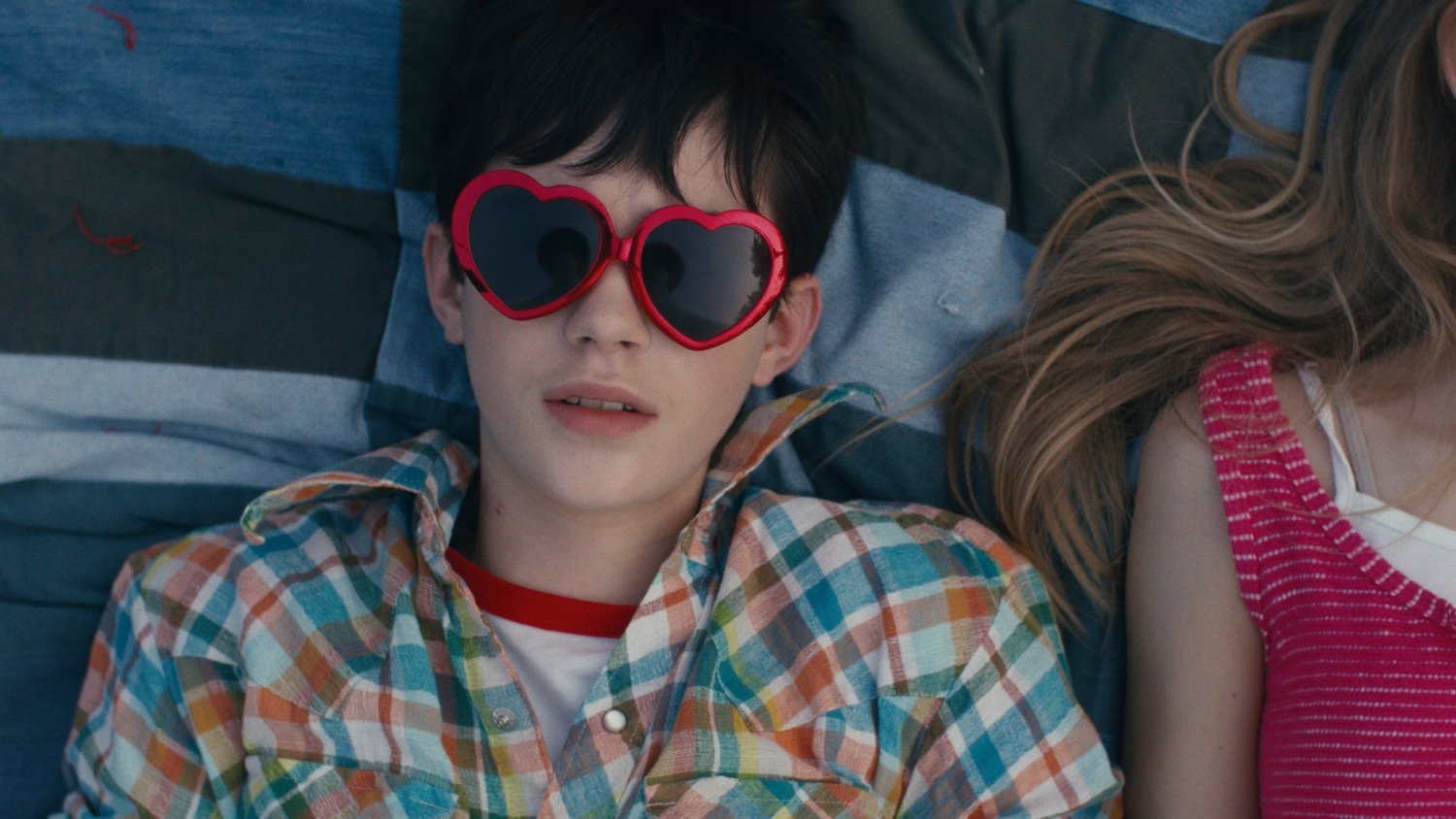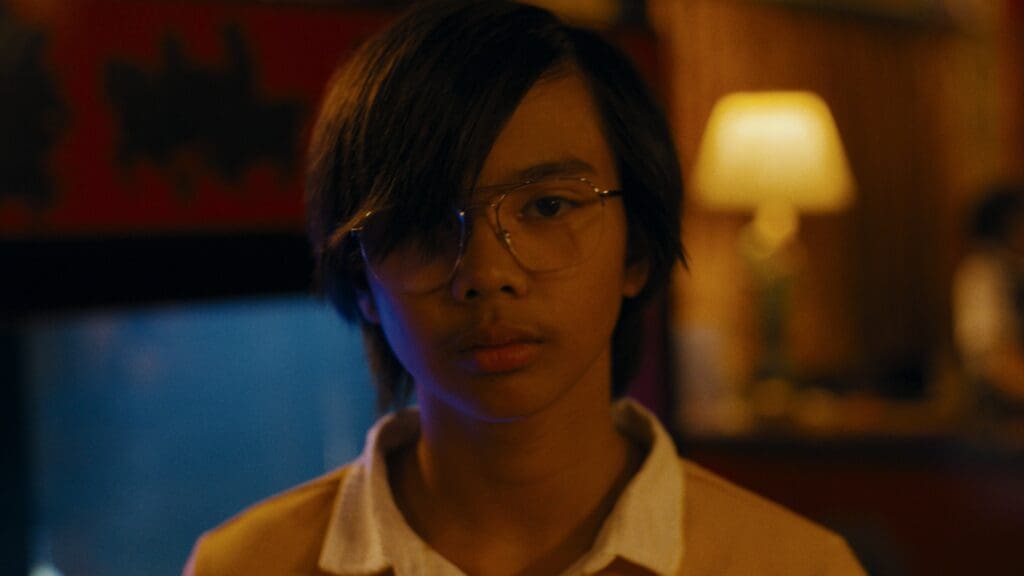
Meet ‘Before I Change My Mind’ director Trevor Anderson
Trevor Anderson’s film Before I Change My Mind has captivated audiences with its innovative storytelling and representation. In this interview, Anderson delves into the inspiration behind the film, discussing its unique narrative and the journey of bringing it to life. From the challenges of crafting an ambiguous screenplay to the significance of portraying adolescence in the 1980s, Anderson shares insights into his creative process and the themes driving his work. Join us as we explore the emotional depth and formal innovation of Before I Change My Mind with its visionary director, Trevor Anderson.
- Before I Change My Mind has received widespread acclaim for its innovative approach to storytelling and representation. Can you share more about the inspiration behind the film and the journey of bringing this unique narrative to life?
I was a queer teen on the Canadian Prairies in the ‘80s. My first story outline for Before I Change My Mind was heavily autobiographical. As I worked with my writing partner Fish Griwkowsky, the story and characters became semi-autobiographical, and in the end it’s fiction. I’m always trying to balance an emotional story with formal innovation: in this case: emotionally I revisited all the big, bold feelings of being a young teen; and formally, the gender of the protagonist is never disclosed in the film.
- The film tackles themes of identity and belonging, particularly through the lens of a nonbinary protagonist set in 1987. What motivated you to explore this specific time period and perspective, and what do you hope audiences take away from the film’s portrayal of these themes?
While it’s true that our lead actor Vaughan Murrae is nonbinary, we don’t determine a gender for the main character Robin. So, it’s not exactly right to call Robin a nonbinary protagonist. Boy, girl, nonbinary, transgender, we left all that offscreen. We wanted to see what would happen if we never pinned down a particular gender for our hero. Robin wouldn’t have language for any of this, and I didn’t want the movie to “know” more that Robin would. Robin knows something is up, everyone else knows something is up, but no one has the vocabulary to talk about it. Of course, the word nonbinary wasn’t even being applied to gender in 1987, so even if Robin did want to identify as such, that word wasn’t around. In the end, I think this strategy increases the audience’s subjective identification with Robin. By the end of the film, the question “What are you?” isn’t about gender, it’s about “What kind of person are you?” – and this is a question I’d hope we all ask ourselves regularly.
- In Before I Change My Mind, the protagonist’s gender is intentionally left undisclosed, challenging traditional narrative conventions. How did you approach crafting the screenplay to reflect this ambiguity, and what significance does it hold within the context of the story?
For starters, we wrote the screenplay without any gendered pronouns for Robin. I don’t mean to imply that Robin wouldn’t be getting gendered constantly offscreen, but I wanted to see what would happen to an audience’s experience of the film if we never saw or heard that. We’re used to seeing queer movies that engage with gender where that’s the whole point of the film, and I wanted to see how we could make room for other questions beyond: “Are you a boy or a girl?” It’s grade eight, so if Robin doesn’t want to answer that question, there are plenty more: “Who do I like? Do they like me back? Who likes me? Do I like them back? What am I willing to do to fit in?”

- The film has been selected for inclusion in The GLAAD List, recognizing promising LGBTQ-inclusive screenplays. How has this recognition impacted the film’s journey, and what does it mean to you to be part of this initiative?
It was an honour and a thrill to have our script named to the 2020 GLAAD List, a curated list of what they call “the most promising unproduced LGBTQ-inclusive screenplays in Hollywood.” After years of working on the script in relative isolation, that was a much-appreciated boost of encouragement for my writing partner Fish and me. Nick Adams at GLAAD has remained a great champion of the film all through its production and release.
- Set in the 1980s, the film captures the complexities of adolescence and navigating societal expectations. Can you speak to the importance of portraying this era authentically, especially in relation to themes of gender identity and acceptance?
Because I grew up in that time and place, it was great fun to revisit it. People assume I had to have complicated conversations with the young cast about gender and sexuality, but really, today’s kids are already experts on all that. What we talked about most was bangs! If I’d had my way, we would’ve chopped short ‘80s bangs into all the girls’ hair, but there would’ve been way too many tears on set. As it stands, we did get a side-pony on screen, and some excellent crimping action.
- As a filmmaker, you’ve had success with both short films and features, with multiple screenings at prestigious festivals like Sundance and SXSW. How has your previous experience informed your approach to directing Before I Change My Mind, particularly in terms of storytelling and visual style?
With my short films, I’m always trying to balance depth of emotion with some kind of formal twist. It’s a constant dance between the heart and the head. The Man That Got Away is a musical about addiction. The Little Deputy is a western about gender. Before I Change My Mind grows out of the same obsession, trying to walk a line between the formal alienation of never disclosing a gender for our protagonist and inviting the audience to still feel deeply what this kid is feeling.

- The cast of Before I Change My Mind includes young nonbinary actor Vaughan Murrae, who portrays the protagonist Robin. What was the casting process like for such a pivotal role, and what qualities were you looking for in the actor to bring Robin to life?
I knew the film would live or die based on the actor we found to play Robin. Our excellent casting director Jesse Griffiths did a Canada-wide search. We were over the moon when we found Vaughan Murrae. Not only is Vaughan a nonbinary actor, which allows Robin’s gender presentation to slip and slide, but Vaughan is such a natural, with heaps of talent. They’re the kind of actor who can let the camera see them think, which is exactly what we needed to build empathy with the character. It’s really easy to love Vaughan, and so by the end of the film the audience is really cheering for Robin.
- The film has been described as a “tender and knowing coming of age story,” resonating with audiences worldwide. What do you believe contributes to its universal appeal, and how do you hope it will impact viewers, especially those who may relate to Robin’s journey?
I hope audiences watch the movie and feel love for Robin. It’s a rough time right now. Trans and gender non-conforming youth are being attacked by politicians who are pushing their own self-interested agendas, and that’s making life difficult and dangerous for our kids. The best route to changing a person’s mind away from ignorance and hate is love. If they can love Robin, it’s a small step in the right direction.
- Before I Change My Mind marks your feature directorial debut. What were some of the challenges and highlights of transitioning from short films to a full-length feature, and how do you feel this experience has shaped you as a filmmaker?
Really, the difference between features and shorts is a matter of scale. It’s a marathon, not a sprint. That doesn’t just apply to having a longer shooting schedule, but it’s true of every stage of the process: from writing, to funding, through pre-production, production, post-production and release. It all takes a lot more time. I wrote the first story outline for Before I Change My Mind in 2014, and it’s finally having its theatrical release in 2024. I’ve made a dozen short films and I hope to make more. I’m glad I’ve made a feature, and I hope the next one isn’t a decade-long process.
- Looking ahead, what projects are you currently working on, and what themes or stories are you interested in exploring in your future work?
My writing partner Fish and I have finished a couple new feature scripts that are currently sitting with different producers who are trying to raise the funds to make them. In the meantime, I’ve got an idea for a new short film that I hope to shoot while I wait for the money to come through for a feature. As always, with each of these projects I’m looking for a balance between deep feelings and playful form.



